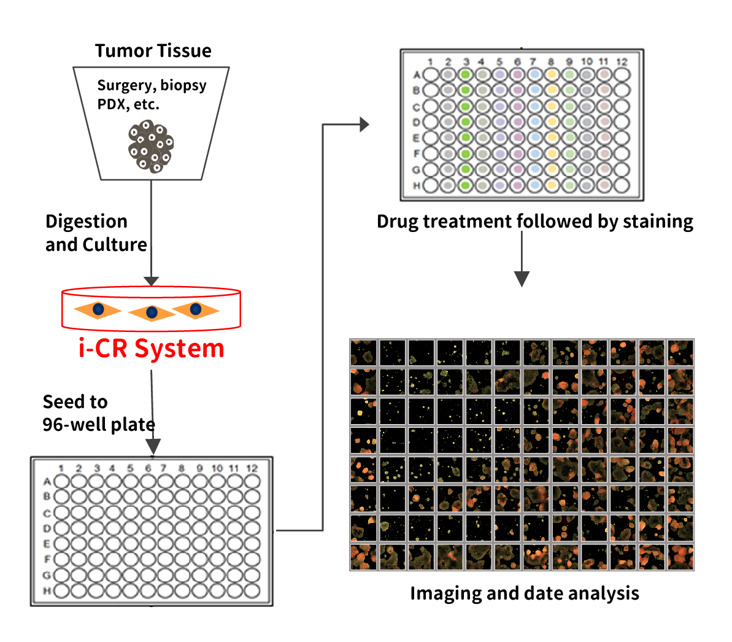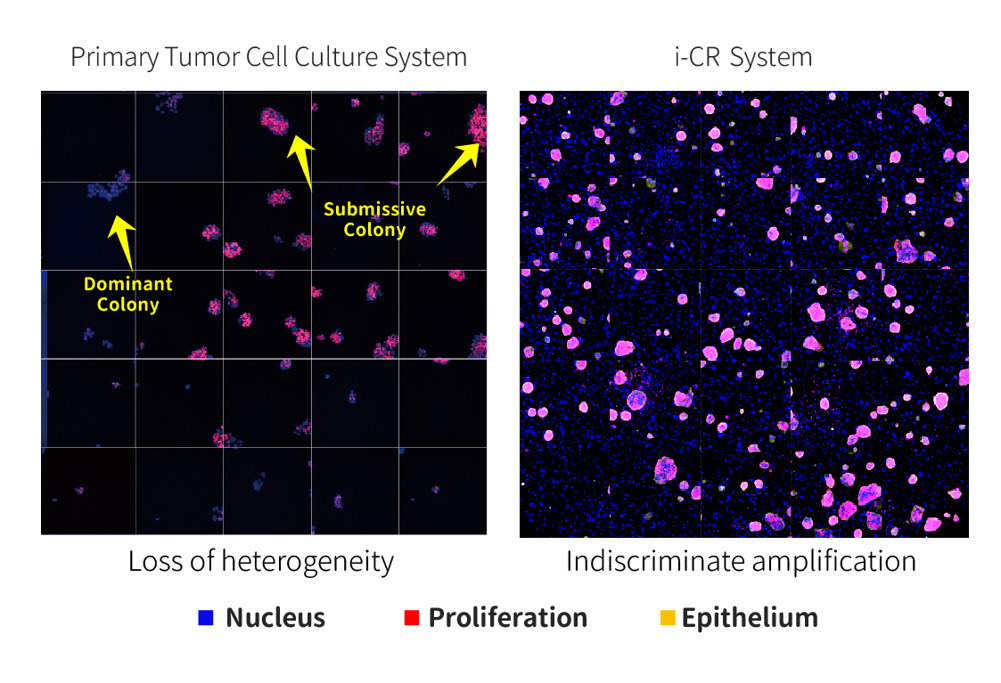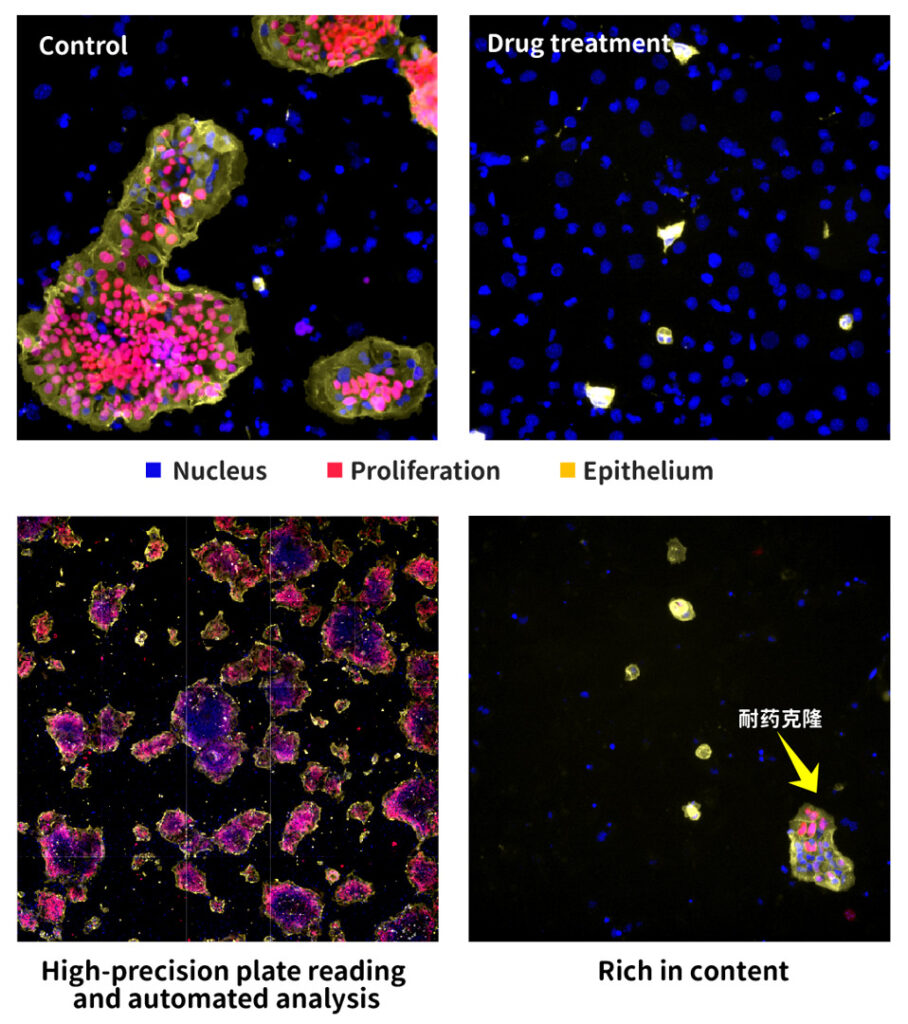i-CR® Drug Discovery Platform
The Only i-CR® Drug Screening Platform with Proprietary IP in the World
- i-CR® is the only platform for high-throughput drug screening on primary cancer cells with proprietary IP
- Effective drug and drug combination can be identified with ultra-high sensitivity and detection window
- The platform has been clinically validated with excellent performance
The i-CR technology is a next generation in-vitro drug screening platform. Derived from the conditional reprogramming concept, it is composed of i-CR primary tumor cell culture technology and a system of high-throughput drug sensitivity detection and analysis. It can efficiently perform in-vitro drug efficacy evaluation with speed and accuracy.


Using primary tumor cells as a model for drug efficacy research
Primary tumor cells are directly isolated from patients’ tumor tissue. In contrast with tumor cell lines, it can more accurately reflect the patients’ pathological information. Therefore, the drug efficacy results obtained by using this model are closer to the clinical reality. The cell culture technology of the i-CR drug screening platform is based on the principle of conditional reprogramming. This system enables the vast majority of tumor cell clones to enter a vigorous proliferative state and maximizes the retention of the heterogeneity of primary tumor cells. In contrast, in the system based on traditional 2D cell culture technology, there are significantly dominant clones, and as the passage numbers increase, the disadvantaged clones are
gradually lost, and the genotype and phenotype of primary tumor cells may change, adversely impacting the accuracy of the system’s ability to detect drug efficacy.
A system of high-throughput drug sensitivity detection and analysis
The drug efficacy detection system is developed based on a high-content analysis system, which can automate cell imaging and data analysis. By labeling tumor epithelial cells and DNA proliferation signals, It can detect the changes of tumor cell proliferation before and after drug administration. Compared with traditional detection methods such as ATP and MTS, this platform can accurately determine the response of a single cell to drugs and can obtain more relevant information on cell phenotype and genetic characteristics.


